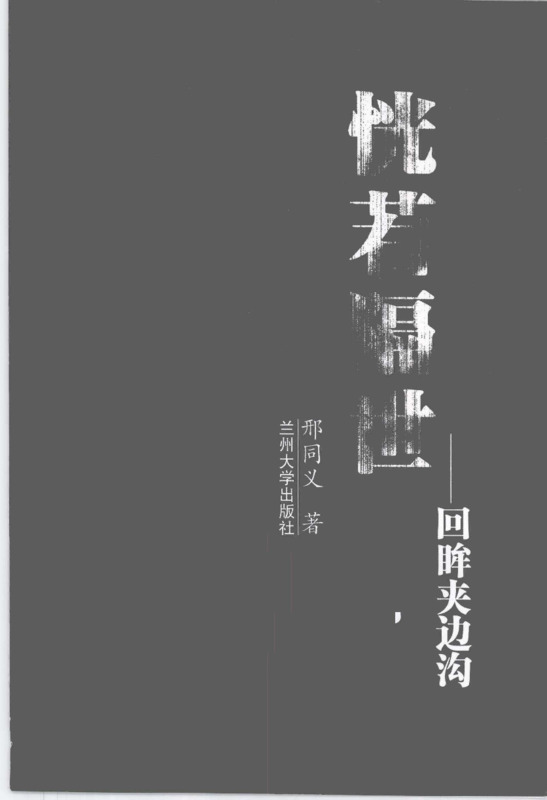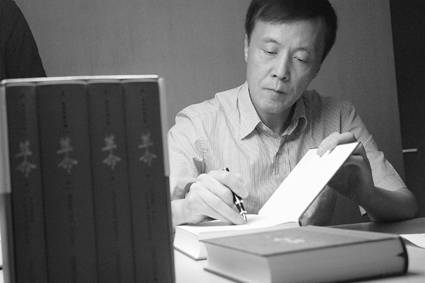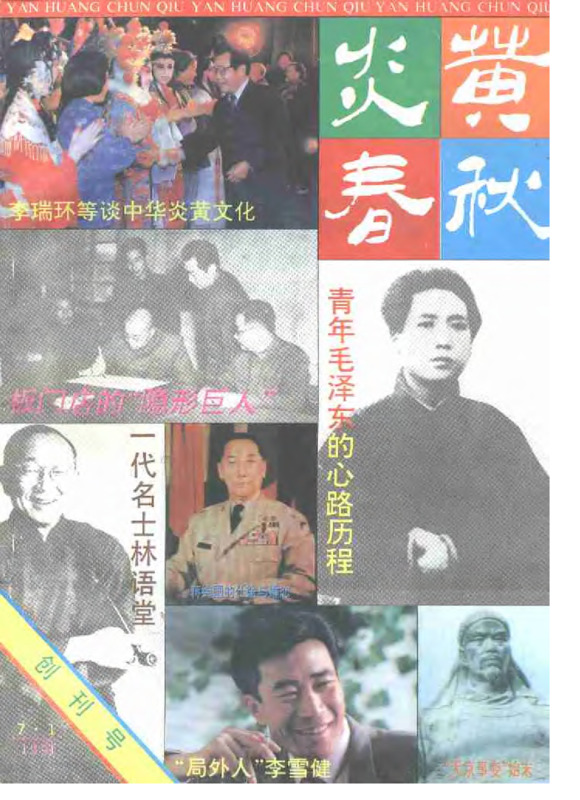Explore the collection
Showing 85 items in the collection
85 items
Book
Worlds Away: A Look Back at Jiabiangou
This book was published by Lanzhou University Press in 2004. The author, Xing Tongyi, once served as deputy director of Gansu People's Broadcasting Station and director of the Standing Committee of the Jiuquan Municipal People's Congress.
Jiabiangou Farm is a farm located on the edge of the Badain Jaran Desert in Jiuquan, Gansu Province, about 30 kilometers northeast of Jiuquan City. It became a labor camp in 1957. Before it was banned in October 1961, more than 3,000 intellectuals who were labeled as rightists were detained here. During the Great Famine, most of the intellectuals in farm labor camps died due to starvation and excessive workload. This is known as the Jiabiangou Incident. Jiabiangou has also become a symbol of the concentration camps where persecuted intellectuals were imprisoned.
Xing Tongyi was born in Tianshui, Gansu. He said that when he was young, he witnessed a neighbor named Guo being beaten as a rightist and sent to Jiabiangou Labor Camp. In 1961, he learned that this neighbor had starved to death in Jiabiangou. When he was in school at No. 1 Middle School in Tianshui City, his math teacher was Li Jinghang, a Christian who survived Jiabiangou. Xing Tongyi later served as a reporter and deputy director of Gansu Radio Station for a long time, and went to work in Jiuquan in 1996. After that, he took advantage of various opportunities to go deep into Jiabiangou and some surrounding labor reform farms. By consulting a large number of historical materials, he interviewed dozens of rightists who had undergone labor reform in Jiabiangou, or the children of these rightists. It took eight years to complete this book.
Unlike Yang Xianhui's novelistic description of Jiabiangou, Xing Tongyi's narrative is composed of interviews with the people involved and quotations from first-hand historical materials. According to Xing Tongyi, the historical materials he referred to include the Jiabiangou Farm's "Plan and Mission Statement" and the anti-rightist report of "Gansu Daily" in 1957. In addition to interviewing Jiabiangou survivors or their children, he also found information on more than 40 of the more than 2,000 rightists who were in labor camps at the time and were prosecuted by the Jiuquan County Procuratorate for resisting labor camps. After the book was published, people continued to provide him with historical materials, such as death notices and diaries of the victims.
How many labor camp inmates were there in Jiabiangou at that time? In order to clarify this issue, Xing Tongyi interviewed dozens of people, reviewed information, and also found Luo Zengfu, the production section chief of Jiabiangou Labor Camp, the only farm management cadre alive at the time. Based on the information provided by Luo Zengfu, Xing Tongyi's research concluded that there were a total of about 2,800 inmates in Jiabiangou Farm at that time, including about 2,500 rightists. This number is considered to be relatively accurate.
Article
Yang Kuisong: A Study of New China's "Counter-Revolutionary Suppression" Campaign
How many people were "killed," "imprisoned," and "controlled" in the whole "anti-revolution" campaign? Mao Zedong later said that 700,000 people were killed, 1.2 million were imprisoned, and 1.2 million were put under control. Mao's statement was naturally based on a report made in January 1954 by Xu Zirong, deputy minister of public security. Xu reported at the time that since the anti-revolution campaign, the country had arrested more than 262,000, of which "more than 712,000 counter-revolutionaries were killed, more than 12,900,000 were imprisoned, and 1,200,000 were put under control, and more than 380,000 were released through education because their crimes were not considered serious after their arrest." (3) Taking the figure of 712,000 executed, it already amounts to one and two-fourths thousandths of one percent of the country's 500 million people at that time. This figure is obviously much higher than the one-thousandth of a percent level originally envisioned by Mao Zedong.
Yanhuang Chunqiu
This magazine was one of most important alternative history journals. It was founded in 1991 by a liberal faction in the CCP, with the help of people such as Xiao Ke, a general in the PLA, and Du Daozheng, a Chinese journalist who once served as head of Guangming Daily and the head of the National Press and Publications Administration of China. It attracted the support of other liberal CCP members, such as Xi Zhongxun, the father of Xi Jinping, and for many years its chief editor was the famous Chinese journalist Yang Jisheng.
The journal had upwards of 200,000 readers a month. In 2016 its reform-oriented management was dismissed as part of a crackdown on alternative histories.
The China Unofficial Archives has a complete set of <i>Yanhuang Chunqiu</i> in its database. Over time, we will index the individual issues and hope to provide English summaries.
Book
Zhao Ziyang’s Conversations Under House Arrest
In January 2007, Hong Kong Open Press published the book "Conversations of Zhao Ziyang under House Arrest". It was narrated by Zong Fengming and prefaced by Li Rui and Bao Tong. The narrator, Zong Fengming, is an old comrade of Zhao Ziyang. He retired from Beijing University of Aeronautics and Astronautics in 1990. From July 10, 1991 to October 24, 2004, using the name of a qigong master, Zong Fengming visited Fuqiang, who was under house arrest in Beijing. Zhao Ziyang, who lives at No. 6 Hutong, had hundreds of confidential conversations with Zhao Ziyang. This book is a rich account of these intimate conversations. Zhao Ziyang talked about the power struggle and policy differences within the top leadership of the CCP, his relationship with Hu Yaobang, his evaluation of Mao Zedong and Deng Xiaoping, his criticism of Jiang Zemin and Hu Jintao, Sino-US relations, the Soviet Union issue and Taiwan issues. He also conducted in-depth reflections on the history of the Communist Party.




